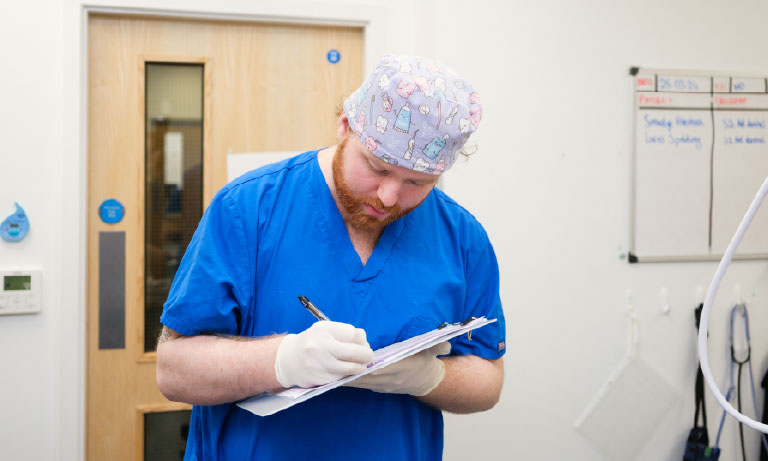The veterinary voice for animal welfare: reflecting on BVA’s updated Animal Welfare Strategy
11 Jul 2025
03 Jun 2025 | Rob Williams
Ahead of chairing a session at BVA Live this month, BVA Junior Vice President Rob Williams talks through the importance of supporting one another and learning together when veterinary care has unintended consequences.

Veterinary medicine is a deeply rewarding profession, yet it is not without its challenges. Among the most distressing are clinical adverse events: unintended outcomes in patient care that may result in harm. These events can range from medication errors and misdiagnoses to surgical complications. While rare in the context of the vast number of cases seen daily, their impact can be profound - not just for the animal, but for the vet or RVN delivering care, the wider team, and the client.
For veterinary professionals, adverse events often carry a heavy emotional toll. Guilt, shame, and anxiety are common reactions, as are increased levels of work-related stress and a loss of clinical confidence. This psychological reaction to an adverse clinical event is known as "second victim" phenomenon; the emotional distress clinicians experience after an adverse event can be long-lasting and damaging if left unaddressed.
Without trying to diminish these feelings another frame we can use following an adverse event is to reimagine the error as a catalyst for improvement, as a learning opportunity. We have all experienced that nausea-inducing moment when we realised something has gone wrong with one of our cases. By fostering a culture where such events are not hidden or feared but instead taking the time as a team to both think about and talk about adverse events, we can transform painful experiences into powerful learning opportunities helping us recover and improve our delivery of clinical care.
Crucially, this culture of learning requires the right kind of leadership. Traditional top-down approaches fall short in supporting teams through difficult experiences. Instead, collaborative, and compassionate leadership are key. Leaders must model vulnerability, acknowledge mistakes, and encourage openness without fear of blame or recrimination. They must also create psychological safety - a work environment where team members feel valued, supported, and confident to speak up. One of the most humbling examples of leadership vulnerability I have seen is a Professor of Equine Medicine saying to a group of recently qualified vets that he did not understand why horses got gastric ulcers and he was not entirely sure how to treat them. This display of vulnerability was a great gift to those inexperienced vets. It is ok not to always know the answer: remaining both self-aware and curious are what makes for a good clinician!
Compassionate leaders understand that supporting the emotional well-being of their team is not a luxury but a necessity. Equally, collaborative leaders recognise that solutions to clinical challenges rarely come from a single voice. I often say to people their single most valuable tool as a leader is curiosity; enabling the team to share past experiences and perspectives can help co-create better processes and deliver safer veterinary care.
Adverse events will never be easy, but in veterinary teams led with empathy and shared purpose, they need not be career-defining failures. Instead, they can be turning points—moments that strengthen team bonds, improve clinical standards, and deepen our collective commitment to care.
|
Join in the conversation at BVA Live, 12 – 13 June 2025. The cost of adverse events: How small steps can prevent big mistakes takes place at midday on Friday 13 June 2025 in the Business, Careers and Debates Theatre. The full BVA Live programme is available here. In line with BVA’s commitment to widening access to CPD, BVA members have the opportunity to secure fully funded educational bursaries. These are open to all members at all stages of their career. Applications for a bursary can be made online or by calling 02476 719 687. |
Get tailored news in your inbox and online, plus access to our journals, resources and support services, join the BVA.
Join Us Today